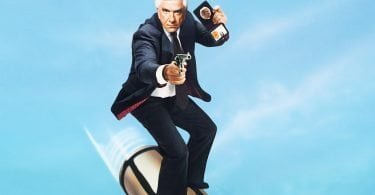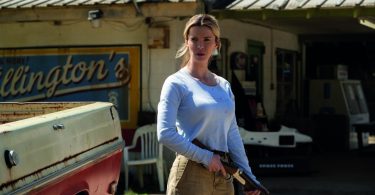Last week Emily Murray caught up with Martha Pinson, an unsung talent that has been working in the film industry for years working with the likes of Martin Scorsese and Oliver Stone, and is now directing her first film Tomorrow. We chatted to her about her expereinces in the industry working with the best directors, what she has learned from these directors and all about her first directorial Tomorrow.
Tell us about Tomorrow? What is it about and how did the project come about?
“Tomorrow” explores the difficulty of moving on from losses and injuries, to forge a life, to find sustaining work, and experience love. This is an acute challenge for a person in their mid-late 20’s, which has not been extensively explored. For an injured veteran or someone with health issues it is colossal. The additional issue of a father-son estrangement is excellent. A young woman who wants to have her own business or be an artist is also out on a high wire. I am absolutely delighted to bring this story to life.
I met one of the producers, Dean Woodford, at a film festival in 2011, where my screenplay had won first prize. He recommended me when the other producers, Stuart Brennan and Sebastian Street, were looking to hire a director. I was hired, much to my delight.
Why did you choose Tomorrow as your first feature-length directorial film?
It was not my choice per se. I was offered the job (a rare thing in our industry). It was so amazing, I loved the script and things proceeded from there. Usually a director is the one to develop the project, raise the funds, so to be offered a job and not have to do all that was a great gift.

How did you go about assembling the brilliant cast, which includes the likes of Stephen Fry?
That was a long process, assisted by having Martin Scorsese on board as Executive Producer. We have a wonderful Casting Director, Urvashi Chugani, who kept on it persistently for months. The London team made suggestions and I did a lot of Skype calls with actors from New York.
How are you finding the challenge of directing a feature-length film? How different is it from directing a short, which you have done in the past?
I don’t know when I’ve enjoyed anything more than directing this film. I’ve said a few times I feel like a kid in my tree house, making up a story. The joy of storytelling, working with actors, creating a scene, working with the whole camera team and everyone on set – it’s just what I love.

How did you get started in the film business? What drew you to the industry?
As a student in high school and college, I was an artist, a writer, a modern dancer, a film buff, and an English Major. When I graduated from college and was looking for work, it occurred to me that film was a good path because it combined all the arts I loved. I handled the PR and advertising for an indie art house, the Orson Welles Cinema in Cambridge, MA, and we did very well. Some directors whose films I launched said to me, “I made money based on the great job you did. You have to work for me.” No one in my family was in the business but I gradually met people and got a start.
You have worked in the film industry for many years. What have been your favourite experiences?
I’ve had so many it’s hard to say. One day working with Lumet we had a big day in a busy mid-town Manhattan street. The scenes included two stunts with trucks, cars, running around. It was so well planned that we did 48 setups (shots) before lunch and went home. Wow, so fast, so cool.
You work a lot with Martin Scorsese. What is he like to work with? Has he been supportive of Tomorrow?
Martin Scorsese is a genius, as everyone pretty much knows. It is amazing to be there, working with him during Principal Photography. His passion, artistry, knowledge, and dedication are astounding. Yes, when I told him about the di- recting offer he said he was behind me 100% and asked to read the script. He really liked it and, to support my work, signed on to Executive Produce. He and his Producer, Emma Koskoff, have been very helpful with advice and introduc- tions. He is supportive of other filmmakers; I’ve seen this many times. He read several of my scripts over the years and watched my short. I could not ask for more.
What other directors have you particularly enjoyed working with? And why?
It’s hard to choose. I enjoyed working with Sidney Lumet, Milos Forman, Peter Yates, Andrew Niccol, Oliver Stone, and Brian de Palma immensely. They are all so brilliant and have unique styles. I even worked with Kenneth Branagh, which was an honour. Basically, I worked with directors whose work I’d admired intensely for years. It was unbelievable in a way. What I most enjoy is telling a good story visually and all of them were determined to do that as well.
What have you learned from other directors that is helping you in your first full- length directorial film?
Everything! A couple of particulars are that I learned from Lumet the importance and technique of rehearsing with the cast prior to shooting. I learned so much from Martin Scorsese that it would take pages to describe. His annotated script, where he enters each shot he wants, is brilliant. He evaluates the artistic strengths of every shot, adjusts as needed, before rolling. The key thing, I learned is the conviction that my vision and my visual and artistic choices are valid and I have to develop and stick with them. I have learned from several great directors to trust my taste and judgement because they did.
What is next for you after “Tomorrow”?
I have a lot of projects in development but first I will edit “Tomorrow,” get it finished and ready to go into release. I have a miniseries I’m working on, and have been offered another film to direct – in New York City. I’m working with a producer who is getting another one of my scripts out to his Hollywood contacts. I have several other directing and writing projects at various stages so will keep going on all of them.
Tomorrow is planned to premiere at the Cannes Film Festival 2015








